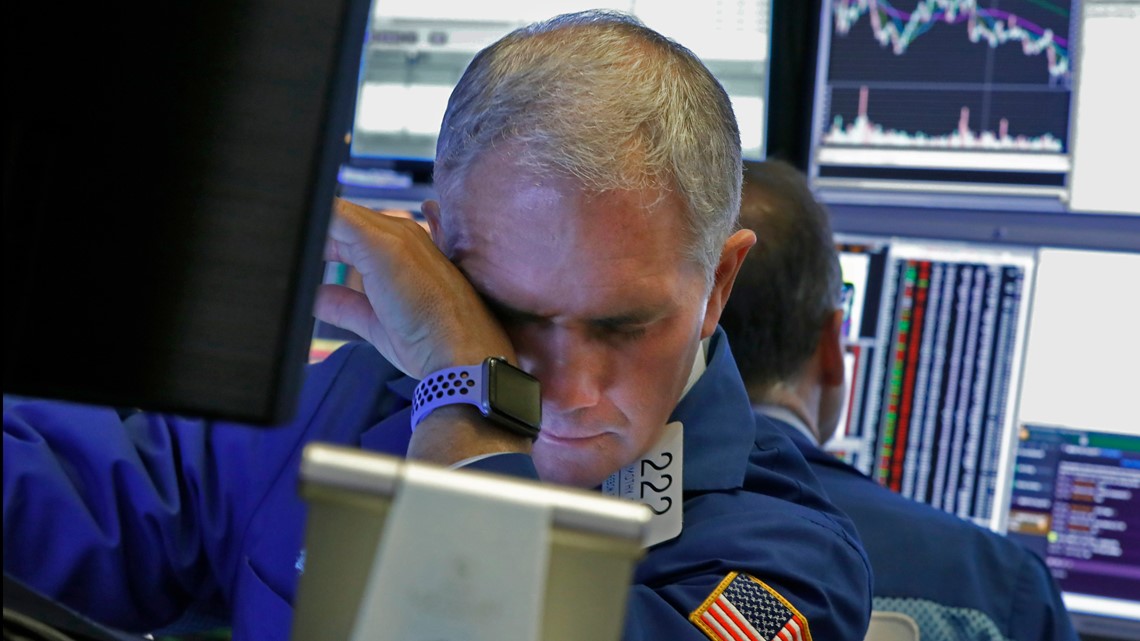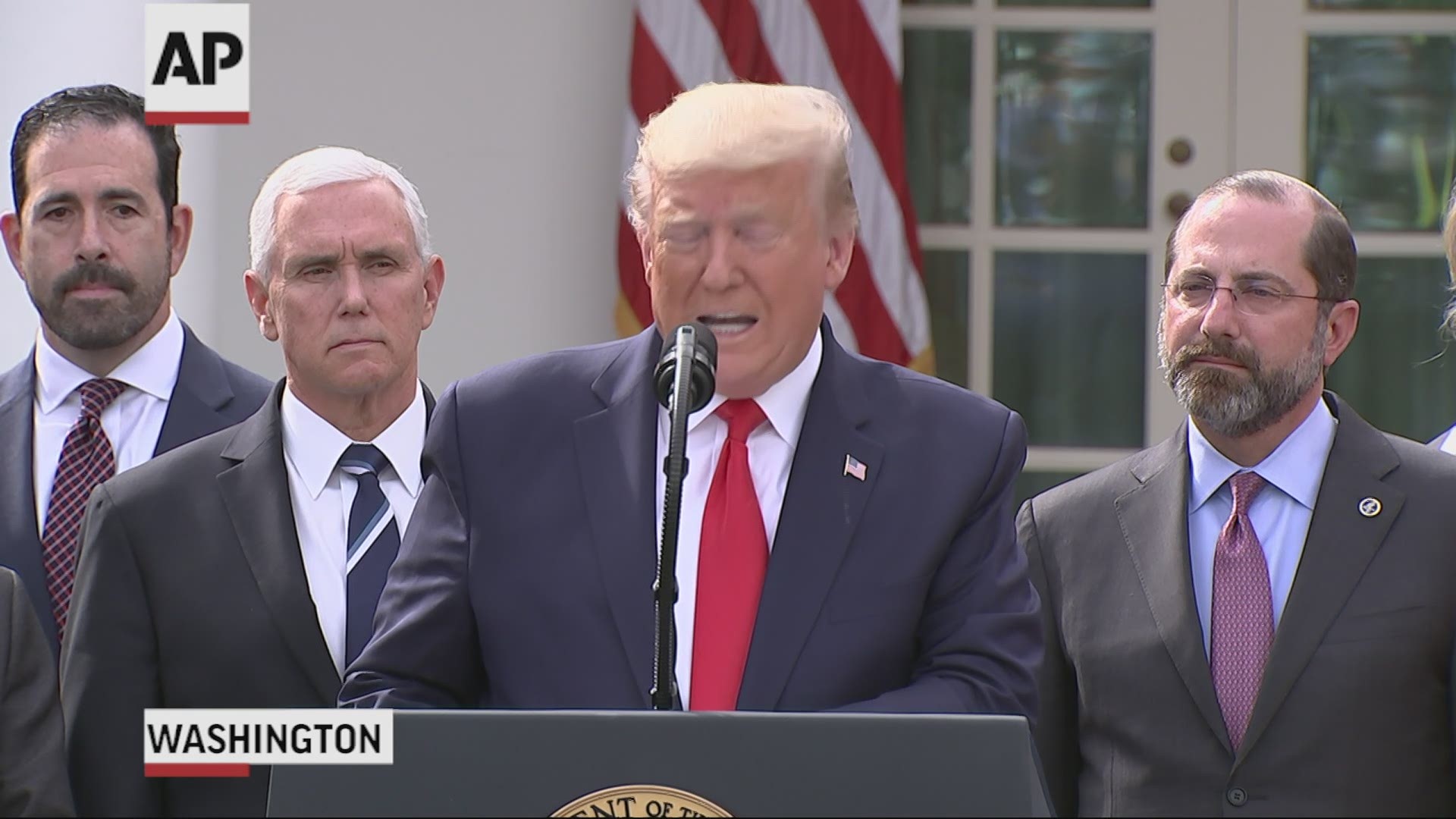NEW YORK — Stocks surged Friday recouping much of a historic plunge, as President Trump announced new measures to fight the coronavirus outbreak. The Dow closed up 1,900 points.
Wall Street roared back from its worst day in 30 years with a broad rally that sent the Dow Jones Industrial Average nearly 2,000 points higher — its biggest point gain ever.
The rally accelerated after Trump declared the coronavirus pandemic a national emergency. The Dow saw its largest percentage gain since 2008.
The rally recouped many of the losses from a day earlier, when the index experienced its worst slide since the Black Monday crash of 1987 and European indexes had one of the worst drops on record. The major indexes each closed with gains of more than 9%.
Stocks were clawing back some of the ground they lost in a historic plunge a day earlier as investors waited for more steps from governments to contain the new coronavirus and economic damage from the outbreak.
Much of an early surge evaporated in another volatile day of trading Friday, leaving major U.S. indexes up about 3% in the early afternoon, or about 700 points in the Dow Jones Industrial Average. They had been up as much as 6% earlier.
The Dow's 10% drop a day earlier was its worst since October 1987.
European markets were also higher after one of their worst drops on record.
The wild swings continued as governments stepped up precautions against the spread of the new coronavirus and considered ways to cushion the blow to their economies. Asian markets ended a volatile day mostly lower. Central banks in China, Sweden and Norway also stepped in to support bond markets.
India's Sensex gained 4% after plunging 10% when it opened. More central banks, including those of China, Sweden and Norway, intervened to flood credit markets with liquidity, a day after similar interventions from the U.S. Federal Reserve and European Central Bank.
As of 6:50 a.m. ET, Dow Jones futures were up 796 points (3.78%), the S&P 500 was up 96 (3.89%) and the Nasdaq was up 319 (4.42%).
Just a few hours earlier, the Dow futures were down more than 600 points.
One thing that may be pushing this turnaround is the news that House Speaker Nancy Pelosi says she and the Trump administration reached an agreement on a coronavirus aid package to provide funding and resources for American workers, families and businesses reeling with health and financial problems from the crisis. She announced the deal Friday afternoon.
RELATED: After Trump's claim about screening website, Google says coronavirus 'tool' still in early stages
The Dow Jones fell nearly 10% Thursday after a loss of 2,352.6 points -- the worst single-day point drop in the index's history. The S%P and Nasdaq weren't far behind.
It was mainly a reaction to Trump's Wednesday night address, calling on a partial travel ban from Europe and other measures which did not go over well with investors seeking relief from the effects of the pandemic.
Trading was halted shortly after the opening bell Thursday after the S&P dropped 7%, triggering a "circuit breaker." It's a 15-minute break to allow investors to take a deep breath.
The losses also came despite the Federal Reserve unveiling a massive short-term lending program to try to help smooth trading, according to The Associated Press. It will provide at least $1.5 trillion on Thursday and Friday for banks that are willing to swap short-term Treasury securities for cash.
European markets opened mostly higher Friday after a turbulent trading session in Asia. Shares rose in Paris and London but fell 6.1% in Japan.
Friday the 13th brought wild swings for some markets as governments stepped up precautions against the spread of the new coronavirus and considered ways to cushion the blow to their economies. India's Sensex gained 4% after plunging 10% when it opened, triggering a brief halt to trading.
Markets have turned turbulent amid a cascade of shutdowns across the globe and rising worries that the White House and other authorities around the world can’t or won’t help the weakening economy any time.
The Dow Jones has now lost nearly all its gains since Trump's inauguration. As the Dow has continued to set record highs over the last three years, Trump has regularly lauded its success under his administration -- something previous presidents generally have avoided.



